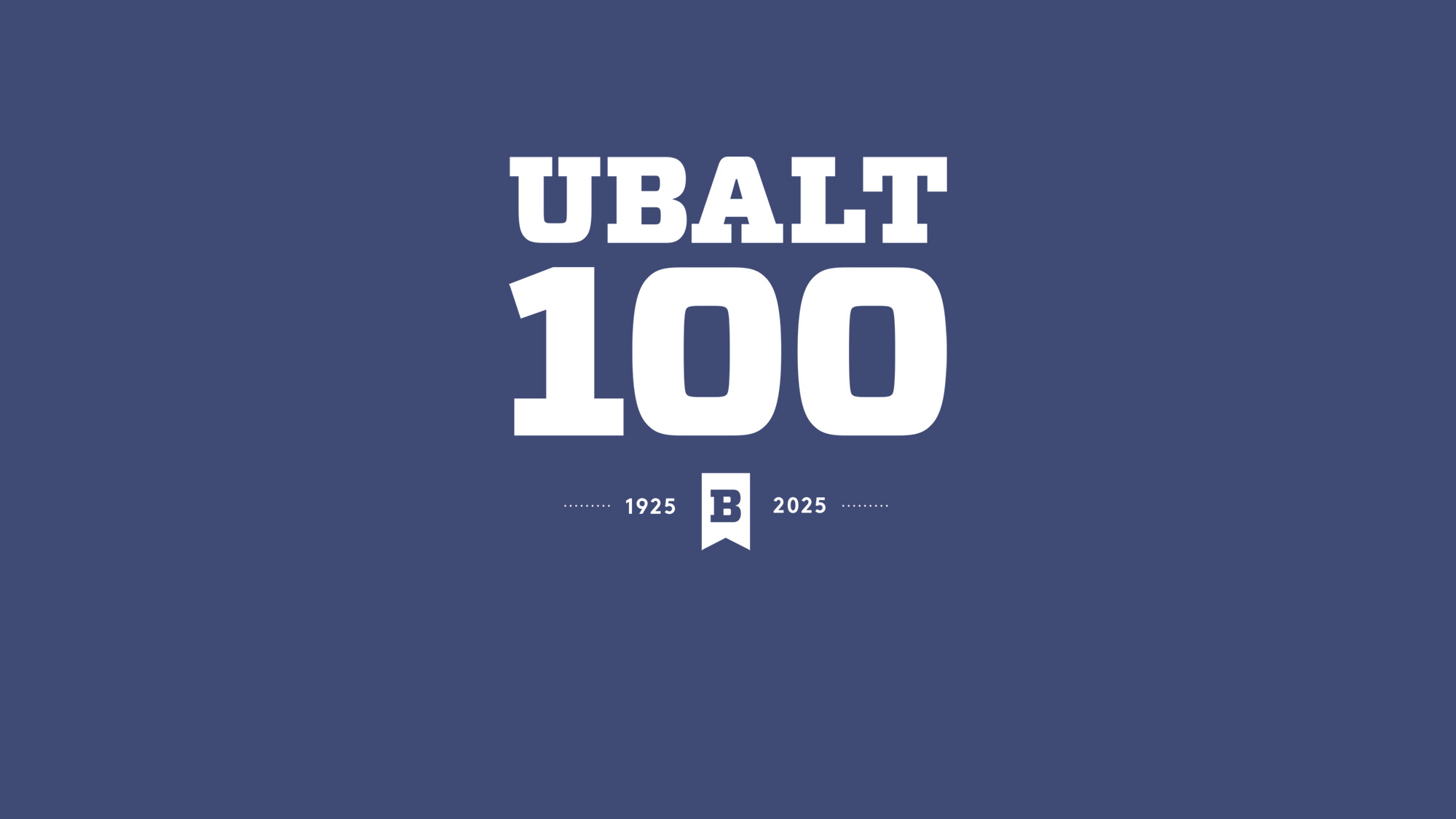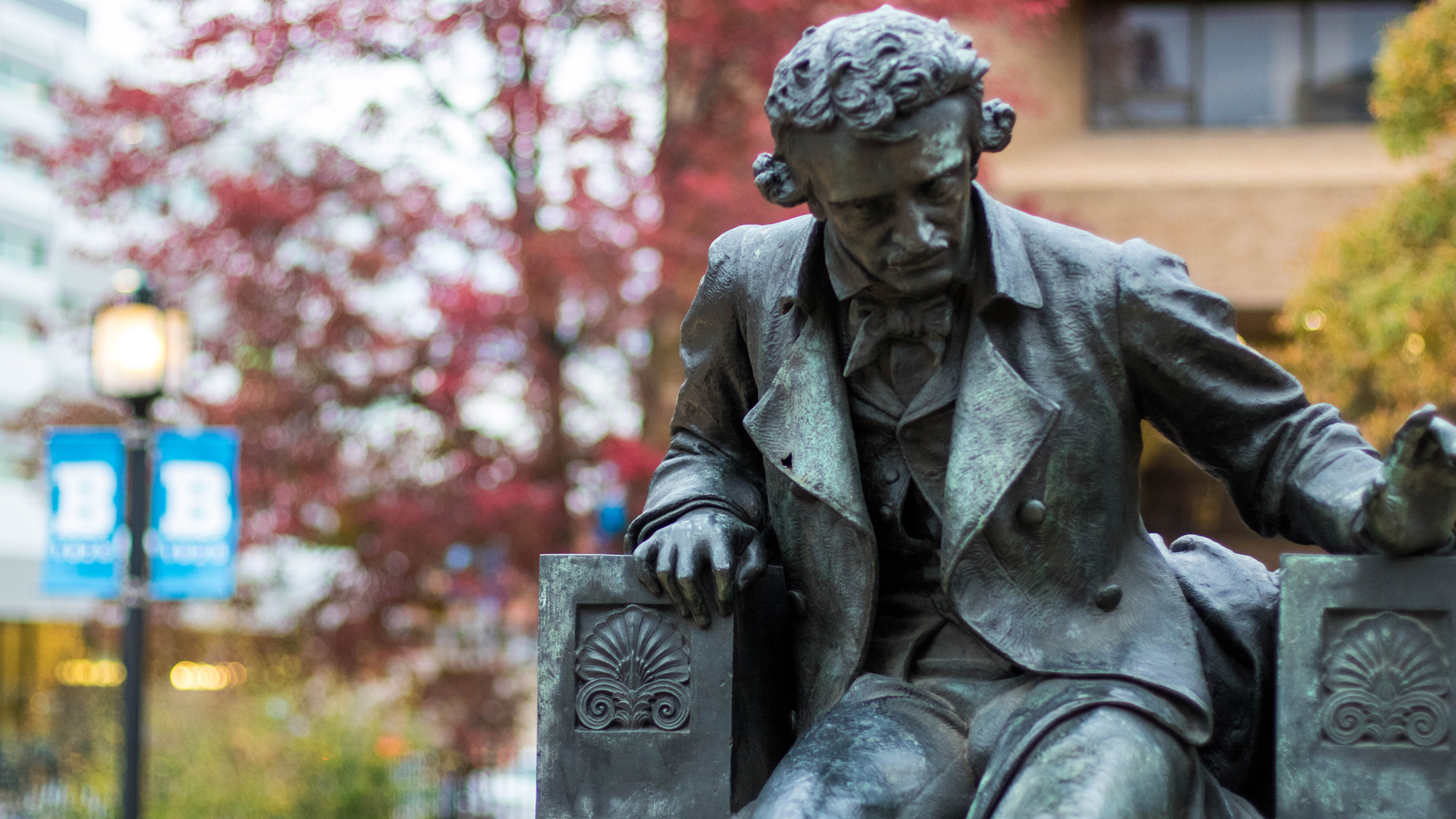MBA - Conflict Resolution

Why This Specialization is For You
Resolve Conflict. Advance Your Career.
Conflict negotiation is an indispensable skill for MBA graduates. It empowers you to manage workplace dynamics, navigate business transactions, excel in leadership roles, and achieve career success. That's why we've partnered with UBalt's College of Public Affairs to offer an MBA specialization in Conflict Resolution.
Business and Entreprenuership
Program Type
Locations/Format
Cost
More About MBA Tuition & Fees
• UBalt offers "regional, in-state tuition" for select out-of-state areas.
Requirements
The MBA is 39-credits
- 30 Core credits
- 9 Specialization credits
No test requirements for admission.
MBA- Conflict Resolution Specialization
The UBalt MBA offers the specialization in Conflict Resolution for those seeking to develop or increase their negotiation, conflict analysis, and conflict management/resolution knowledge. Being able to negotiate and handle conflict productively is indispensable in the modern workplace, and this becomes even more important as you move up the career ladder.
This specialization is aligned with a graduate certificate offered by the College of Public Affairs.
The MBA for Working Professionals.
Earn your MBA in as few as 18 months or work at your own pace.
We recognize the importance of work-life-education balance, so we offer flexible learning options for working professionals. Our on-campus business classes begin at 6 p.m., with some offered in a hybrid format (combining in-person and online learning) and all of our online classes are available asynchronously. You also have the choice to take a part-time or full-time courseload, and change your mind every semester.
Learn more about the Admission process.
Essential Skills for the Workplace
Conflict resolution is a valuable skill for MBA graduates. It empowers you to navigate complex interpersonal and business situations effectively. Here's why:
Importance of conflict resolution skills for MBA graduates:
- Workplace Dynamics: MBA graduates often work in teams, lead projects, and manage departments. Conflicts are inevitable due to diverse personalities, goals, and work styles. Effective negotiation helps resolve disagreements, maintain positive relationships, and ensure team productivity.
- Business Transactions: Negotiation is crucial in mergers, acquisitions, partnerships, and contract discussions. Skilled negotiators can secure favorable deals, build strong business relationships, and create mutually beneficial outcomes.
- Leadership Roles: Leaders often mediate disputes between team members, departments, or stakeholders. Strong negotiation skills enable leaders to find common ground, build consensus, and foster a harmonious work environment.
- Problem Solving: Conflict resolution involves identifying the root cause of problems and finding creative solutions. Negotiation skills enhance problem-solving abilities, leading to innovative and effective outcomes.
Conflict resolution is not just a "nice-to-have" skill for MBA graduates; it's a critical competency that can significantly impact their career success. By mastering these skills, they can become more effective leaders, build stronger relationships, and drive better business outcomes.
What Our
Graduates Do
Common Roles

A Message from Dean Raju Balakrishnan
Read Full Story
A degree from the Merrick School of Business is more than just a qualification; it's a passport to a world of opportunity.
Admission Information
Your application will be accepted on a rolling basis but you can use these dates as a guide.
- Fall: Aug. 15
- Spring: Jan. 1
- Summer: May 1
Admission will be offered depending on availability of space, strength of your credentials and sufficiency of time for processing.
Questions? Contact an admission counselor at 410.837.4777 or gradadmission@ubalt.edu.
Let us know when you are ready to earn your MBA by applying to the program. Our online application will only take you a few minutes to complete. Before you submit the application, you’ll be asked to use your credit card or bank account to pay the $50 application fee.
Insider tips:
The earlier you apply and submit a completed application, the faster you’ll receive
an admission decision. Each one of your supporting admission documents may be sent
individually. Your admission portal will keep track of what the UBalt Admission team
has received.
When you attend an information session or discuss your application with an Admission counselor or Merrick School of Business representative be sure to get your application fee waiver code and save yourself $50.
A bachelor’s degree in any field is required for admittance into the MBA. This program is open to students without an accounting undergraduate degree as well as those who have earned an accounting-focused bachelor’s degree. The undergraduate GPA for admitted students typically ranges from 2.9 to 4.0.
Historically, admitted MBA students have average cumulative GPA's of 3.2 and come from a variety of academic majors, with the majority having some sort of prior accounting education.
The University of Baltimore has several scholarships that may be available for those students who have submitted competitive GPA documentation.
A key factor for all applicants is the undergraduate GPA, although graduate coursework will be taken into account. Request your official transcripts as soon as possible, as they can take time to print, prepare and mail. The Office of Admission requires original transcripts from all universities you’ve attended. It’s easiest to have the institution send your transcript directly to us.
If you are mailing an institution’s transcript, do not break the seal upon receipt. If you attended a non-U.S. institution, you must provide the official transcript and a transcript evaluation with a course-by-course analysis conducted by a transcript evaluation service such as World Education Services.
Send your resume to our team via email. By submitting your resume you are signaling that you are a polished professional. That’s great because our students are professionals who are looking to enhance or change their careers. The diversity of your overall work experience is important to us.
The Admissions Committee holistically considers your transcripts, work experience, personal statement and professional recommendation in the evaluation process.
Your personal statement is important, so take your time writing it. Please submit it to documents@ubalt.edu.
Clearly tell the admissions committee more about your background and your interests. Share the reasons why you are interested in pursuing a University of Baltimore degree in MBA.
Include your thoughts about how the program will assist you in achieving your academic and professional development goals. Make sure your essay is well written and exhibits a high level of academic and professional competency. Again, don’t forget to proofread for grammatical and spelling errors.
One recommendation letter is required for candidates with a GPA less than 3.0. It should come from someone with the ability to evaluate your academic aptitude and/or professional experience, such as a professor, supervisor, project partner, or mentor.
Candidates with a GPA above 3.0 are not required to submit a letter of recommendation but it is welcomed.
Examples should include details of your work history, thoughts on your competence as an employee, an explanation of why they think you’d be a successful MBA candidate, description of your academic ability, etc.
Ask the writers to put their letters of recommendation in sealed envelopes with their signatures on the back flap. Give those individuals who are writing your letters of recommendation at least two weeks—but preferably a month—to complete the task. This allows them to take their time and communicate their thoughts and recommendations of the likelihood that you will succeed in the program.
University of Baltimore
Office of Graduate Admission
1420 N. Charles St.
Baltimore, MD 21201
Your application will be accepted on a rolling basis but you can use these dates as a guide.
- Fall: Aug. 15
- Spring: Jan. 1
- Summer: May 1
Admission will be offered depending on availability of space, strength of your credentials and sufficiency of time for processing.
Questions? Contact an admission counselor at 410.837.4777 or gradadmission@ubalt.edu.
UBALT BUSINESS IS FOR YOU
The University of Baltimore Merrick School of Business helps you achieve your career goals. We value your real-world experience and believe it brings a valuable perspective to the classroom. Whether you’re looking to launch your career, seek a promotion or even a career change, our programs provide the support and network you need to succeed. You'll be taught by professors who aim to equip you with the skills needed in a dynamic business environment and you’ll learn alongside a diverse group of classmates, gaining from their perspectives while enriching theirs with yours.











